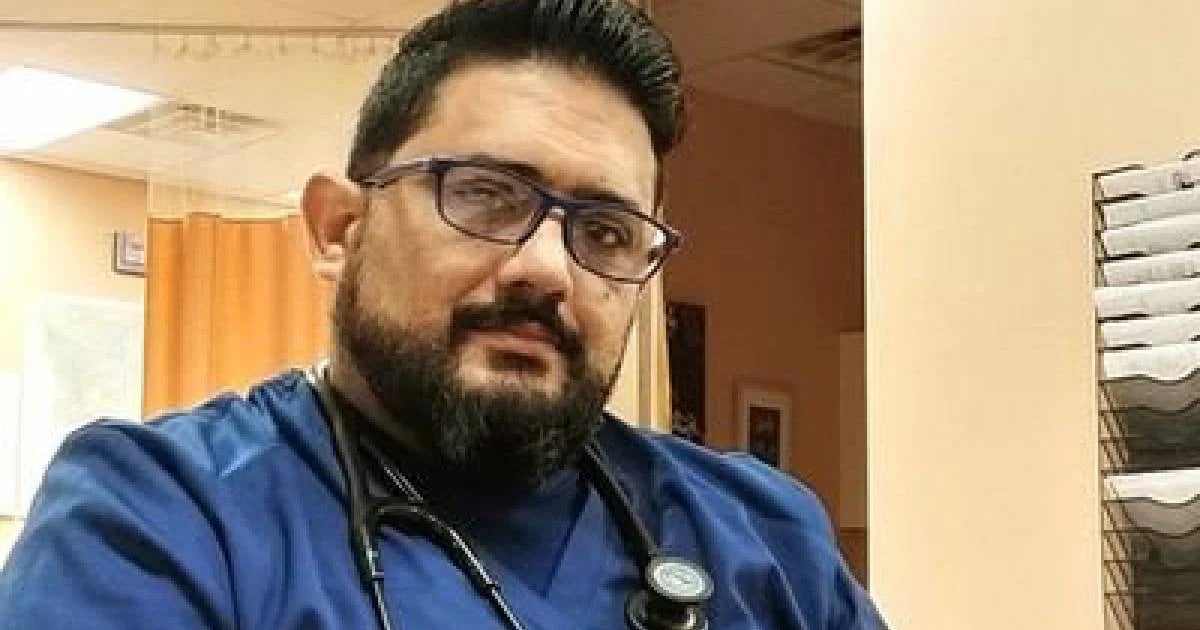Dr. Alexander Jesús Figueredo Izaguirre, a Cuban physician who made his way to the United States by crossing borders in July 2022, expressed a bold message on social media amid growing immigration uncertainty facing thousands of Cubans in the country. "If tomorrow, because of these stances, I lose my residency and the Cuban regime goes crazy and lets me in, they better get ready," he declared on Facebook, referencing Cuba's selective acceptance of deported individuals.
His post was a response to a comment by outspoken lawyer Manuel Viera, who remains in Cuba and has been critical of both the Cuban regime and U.S. immigration policies. Figueredo, known for his social media activism and criticisms of Cuba's healthcare system, currently resides in Houston, Texas. He works at a clinic while preparing to validate his medical degree.
In his message, he touched upon the current political climate in the United States, where recent measures by the Trump administration have raised alarms among those who arrived under humanitarian programs or without a clear path to legalization. "I do not kneel before Trump or Díaz-Canel," he wrote. "I speak my mind, even if it hurts, and even if it bothers some more than a truth spoken aloud in an empty square."
Although he did not directly address his immigration status, Figueredo hinted that he could be impacted by the new policies. His response to Manuel Viera emphasized his readiness to continue fighting if forced to return to Cuba: "If one of my feet crosses the border back, I call all of Bayamo to the streets."
Crossfire of Criticism: Politics, Immigration, and Cynicism
The digital exchange stemmed from an analysis by Manuel Viera, who criticized the "cynicism" of both governments' immigration policies on Facebook. Viera, who announced his intention to leave the country in September, condemned the U.S. approach towards migrants: "Welcoming thousands with balloons and songs only to give them 30 days to leave the country," likening it to the official acts of Castro's regime.
He also pointed out that both Cuba and the United States have used migration as a political tool, while "the only ones hurt have been Cuban families." "Trump makes everyone pay for the mistakes of a few and causes thousands of families to suffer," he stressed, a sentiment echoed by his compatriot in exile.
The clash between Viera and Figueredo comes at a time of high tension for the Cuban community in the U.S., following the Trump administration's announcement of the end of the humanitarian parole program, which could leave thousands without legal protection.
Although Figueredo has held permanent residency since last year and is not at risk of deportation, his message underscores the concern for those who have arrived recently and are still struggling to regularize their immigration status. The doctor was forced to leave Cuba after being professionally disqualified by the regime as retaliation for his critical stance towards the healthcare system and government.
His departure from the country occurred alongside his colleague and fellow activist Alexander Pupo Casas, another doctor who faced sanctions for speaking freely. Both crossed multiple borders until they reached the land of liberty and have since maintained a direct discourse against authoritarianism and in defense of Cuban rights.
Frequently Asked Questions About Cuban Immigration and Residency
What challenges do Cuban immigrants face in the U.S.?
Cuban immigrants often face challenges such as uncertain immigration status, navigating complex legal pathways to residency, and adapting to a new cultural and social environment. Recent policy changes have heightened these difficulties.
How has the Trump administration impacted Cuban immigrants?
The Trump administration's policy changes, including the elimination of the humanitarian parole program, have created more uncertainty for Cuban immigrants, potentially leaving many without legal protection or a clear path to residency.
What are the consequences of being deported back to Cuba?
Deportation back to Cuba can result in significant personal and professional consequences, including potential political persecution, loss of professional licenses, and separation from family members who remain abroad.
